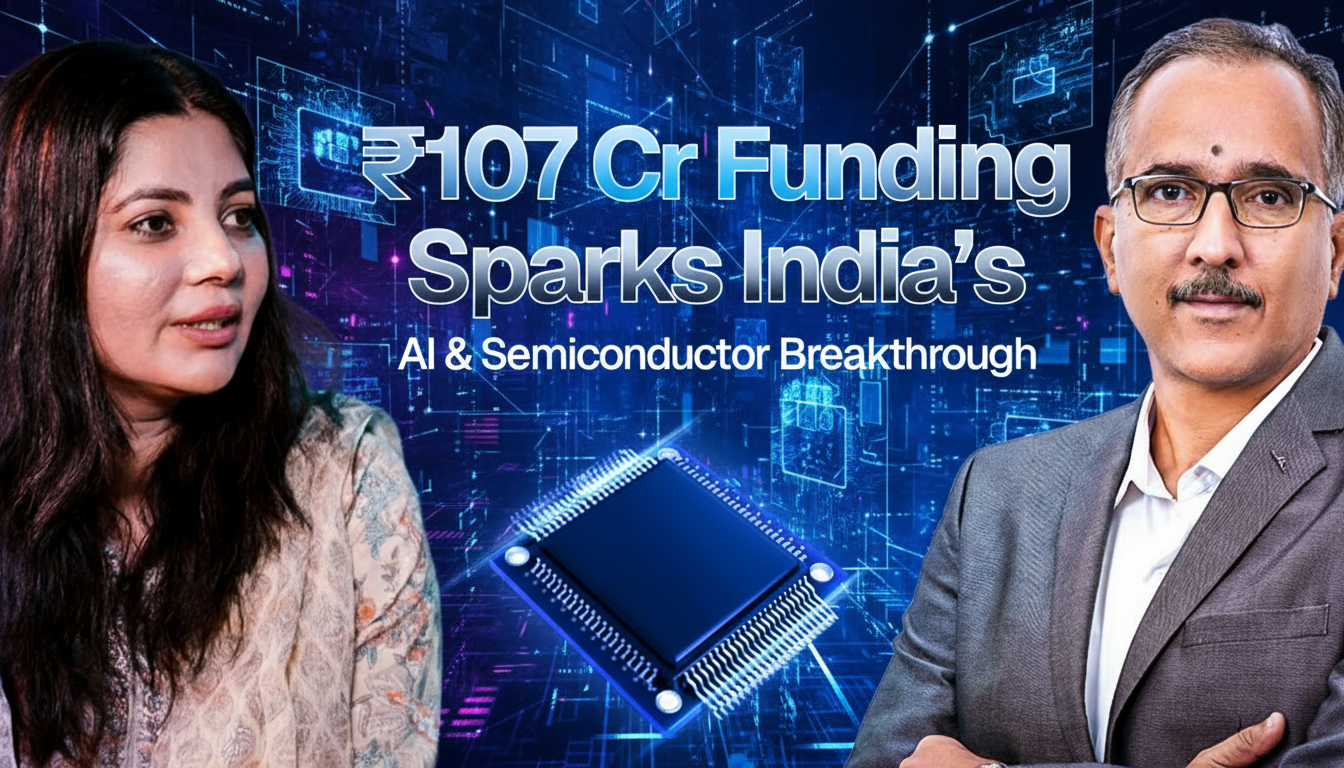Netrasemi, a Kerala-based semiconductor startup, has raised ₹107 crore in funding led by Zoho Corporation and Unicorn India Ventures to accelerate its vision of building edge AI chips in India. Founded in 2020 by Jyothis Indirabhai, Sreejith Varma, and Deepa Geetha, the startup is developing a unique portfolio of domain-specific accelerators that bring AI directly to edge devices—boosting speed, energy efficiency, and data privacy.
A Big Boost for Edge AI in India
For CEO Jyothis Indirabhai, the timing couldn’t be better. Global interest in semiconductors is rising, and India’s government is offering unprecedented support. Moreover, investors are showing greater confidence in domestic chip design startups than ever before. “This is the time for semiconductor startups to shine,” he says. The startup’s ambition is bold: unleash AI’s full potential by embedding it directly into devices at the edge of networks, rather than relying on centralised cloud servers. As a result, applications can achieve real-time responsiveness, lower latency, and stronger privacy since data never leaves the device. Whether powering autonomous drones, surveillance systems, or industrial automation, Netrasemi is betting big on edge AI as the future of computing.
Building Chips from the Ground Up
Unlike many companies that use off-the-shelf cores, Netrasemi is designing its chips from scratch. In contrast to a single generic chip, the company is building multiple chips, each featuring domain-specific hardware acceleration for AI. This patented architecture is tailored for use cases such as robotics, industrial IoT, surveillance, and video analytics. However, this approach did not happen overnight. Founded in 2020, Netrasemi deliberately delayed its first tape-out until it had built a strong IP portfolio and validated its business plan. Therefore, by the time it moved forward, the company had a robust foundation in place.
From R&D to Commercialisation
The new funding arrives at a pivotal stage. After years of research, Netrasemi is now transitioning from R&D to large-scale commercialisation. The ₹107 crore round will scale R&D and IP development, strengthen manufacturing and marketing capabilities, and support the rollout of four advanced SoC families featuring AI and video analytics. So far, two video-enabled edge AI chips are already in the tape-out stage. Meanwhile, production of SoC families is expected in 12–18 months, with launches planned for early 2026. In addition, work on next-generation ultra-high-performance chips for edge servers is also underway.
Competing Globally, Building Locally
In semiconductors, competition is fierce. Startups like Netrasemi face global powerhouses from the US, Israel, and China. On the other hand, India brings its own strengths, including government incentives and a rapidly growing domestic market. Indirabhai admits that India can’t replicate the US model but believes that homegrown companies can compete by focusing on niche edge AI markets, building in-house IP, creating lean and focused roadmaps, and forming global alliances. Furthermore, India’s government support is pivotal. Initiatives like the Design-Linked Incentives (DLI) and Chip-to-System (C2S) programmes reduce upfront R&D costs by subsidising design and prototyping. Consequently, these schemes help startups survive the long, expensive journey from design to mass production.
The Bigger Picture
India currently imports nearly 100% of its chips, except for small volumes in strategic domains like space and defence. This dependency drives up costs and limits the country’s ambitions to become a product-driven economy. By creating ASICs (application-specific integrated circuits) in India, Netrasemi hopes to reduce dependency, boost domestic innovation, and strengthen India’s place in the global semiconductor ecosystem. However, Indirabhai cautions aspiring founders that semiconductor entrepreneurship is not for the faint-hearted. “The worst thing that can happen to you is premature investment. In chips, you need seven to eight years of R&D before real maturity.”
Conclusion
With its ₹107 crore funding, in-house IP, and focus on edge AI chips, Netrasemi is at the forefront of India’s semiconductor revolution. In the long run, its India-first, globe-ready approach could help the country transition from an import-heavy economy to a true semiconductor innovator. “You should expect really cool chips from India—built for India, and for the globe,” says Indirabhai.
Disclaimer
This article is based on information originally published by YourStory. All rights and credits for the original reporting belong to YourStory and the respective author. The content here has been adapted for informational purposes.








